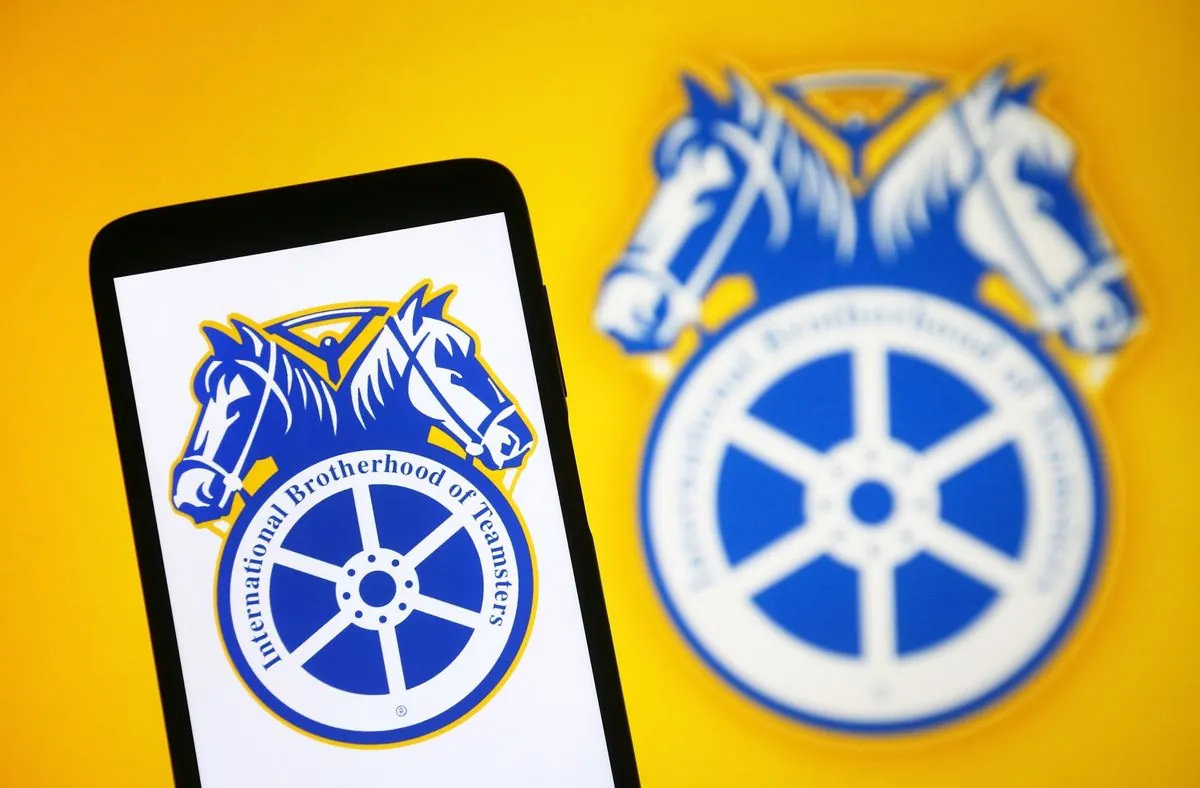In a surprising turn of events, the Teamsters union, one of America's largest labor organizations, has decided to withhold its presidential endorsement for the first time since 1996. This decision, announced by Teamsters President Sean O'Brien on September 18, 2024, has sparked a wave of local and regional endorsements for Vice President Kamala Harris in key battleground states.
The Teamsters, founded in 1903, have a long history of political involvement and have played a significant role in shaping labor laws and worker protections in the United States. With over 1.2 million members across North America, the union's endorsement carries substantial weight in presidential elections.
In response to the national union's non-endorsement, Teamsters regional councils representing hundreds of thousands of members and retirees in Michigan, Wisconsin, Nevada, and western Pennsylvania swiftly endorsed Harris. Powerful local unions in Philadelphia, New York City, Long Beach, and Miami, along with the union's National Black Caucus and a group of retirees, also threw their support behind the Vice President.
Kevin D. Moore, president of Teamsters Joint Council 43, representing 245,000 members and retirees in Michigan, stated:
"Both Vice President Kamala Harris and Governor Tim Walz have consistently demonstrated their dedication to championing the labor movement."
The Teamsters' decision not to endorse has raised eyebrows, given the Biden-Harris administration's pro-labor achievements. This move has provided former president Donald Trump and his allies with new ammunition to court union members, who traditionally lean Democratic.
The controversy deepened when the Teamsters released results from two internal surveys showing rank-and-file members favoring Trump over Harris. However, the union's failure to disclose crucial methodological details has led many union leaders and political strategists to question the validity of these polls.
A national Fox News poll conducted in mid-September 2024 painted a different picture, showing Harris with 53% support among union households compared to Trump's 47%, within the poll's margin of error. This contrasts with the 2020 election, where Biden led Trump 56% to 40% among union household voters.
The Teamsters' non-endorsement also reflects internal divisions within the union. Sean O'Brien, who became the union's top official in 2021, has adopted a more bipartisan approach, meeting with both Harris and Trump. His address to the Republican National Convention in July 2024 marked the first time a union president had done so, sparking outrage among Democrats.
This decision has historical significance, as the Teamsters have endorsed the Democratic ticket in every presidential election since 1996. The union's complex political history includes endorsements of Republican presidents in earlier decades, such as Richard M. Nixon, Ronald Reagan, and George H.W. Bush.
As of September 19, 2024, at least eight regional councils covering Teamsters members in 14 states, along with 10 union locals, have endorsed Harris. These regional councils alone represent more than 500,000 Teamsters members. Notably, no regional or local Teamsters organizations have endorsed Trump.
The Teamsters' involvement in this election reflects their long-standing role in American politics and labor movements. From organizing truck drivers during the Great Depression to participating in high-profile strikes like the UPS strike of 1997, the union has consistently fought for workers' rights and shaped the labor landscape.
As the 2024 presidential race intensifies, the impact of these endorsements on Teamsters members' voting behavior remains to be seen. The union's internal divisions and the contrasting narratives between national leadership and local branches add an intriguing layer to an already complex political landscape.
